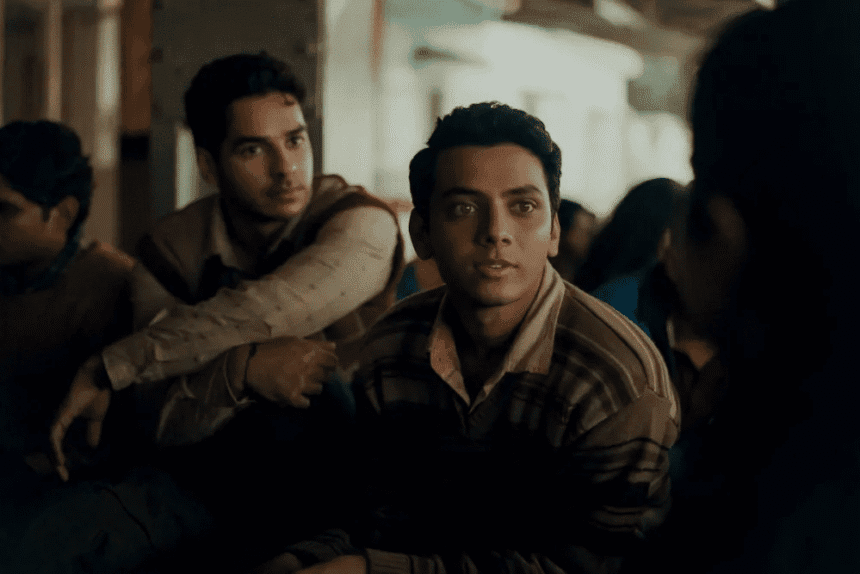‘Homebound’ Review: A Confrontation of India’s Sociopolitical Landscape
Neeraj Ghaywan’s latest film, Homebound, features Vishal Jethwa and Ishaan Khatter as Chandan Kumar and Mohammed Shoaib Ali, two best friends whose friendship is intricately tied to their identities, highlighting the delicate nature of their relationship against the backdrop of contemporary India. Chandan hails from a working-class Dalit family with laboring parents, while Shoaib comes from a Muslim family in India’s Hindi heartland, where his father, a farmer, is facing health challenges.
This starkly divided societal landscape doesn’t sever their bonds, even as it shapes their daily experiences and aspirations. Homebound premiered in the Un Certain Regard section of the 2025 Cannes Film Festival and features Martin Scorsese as an executive producer. The film is adapted from a New York Times article by Basharat Peer, titled “A Friendship, a Pandemic and a Death Beside the Highway.” Selected as India’s entry for the Academy Award for Best International Film shortly before its release, Homebound marks Ghaywan’s return to feature filmmaking after his acclaimed debut, Masaan, in 2015.
Since Masaan, Ghaywan has directed noteworthy projects, including the short film Juice in 2017 and an episode of the Netflix anthology Ajeeb Daastaans in 2021, as well as episodes of popular series like Sacred Games and Made in Heaven. As India’s political climate has shifted dramatically over the past decade, Ghaywan has expressed concern over the representation of marginalized communities in Indian cinema.
The film unfolds with Chandan and Shoaib attempting to catch a train for government entrance exams, aspiring to join the police force. They believe that wearing khaki uniforms will elevate their social standings. Chandan’s cynicism juxtaposes Shoaib’s optimistic outlook, as the latter pushes his friend to pursue their goals for the sake of their families. While Peer’s original article focuses on their journey home during the pandemic, Ghaywan’s screenplay intricately explores each character’s backstory, setting the stage for a poignant narrative that concludes with a striking odyssey on foot.
Throughout its runtime, Homebound delves deep into the lives of its characters. Chandan adopts a simplified identity when questioned about his background, navigating the stigma attached to his caste. A pivotal scene occurs at a government office, revealing the underlying systemic hurdles he faces.
In contrast, Shoaib’s identity is more visible, embodying the rising anti-Muslim violence within contemporary society. Ghaywan masterfully depicts the subtlety of such tensions through relatable scenarios, such as a cricket match that devolves into hostility. Shoaib, employed at a water purifier company, faces discriminatory challenges at work despite his success.
Ghaywan strongly integrates melodrama as a narrative device. The film often circles back to a rocky riverbank under a bridge, a meeting point for both friends that serves as a space for honest dialogue regarding their identities, aspirations, and struggles. The friendships portrayed are raw and vulnerable, marking a stark emotional landscape as they confront the apathy of governing bodies toward their communities.
Introducing Sudha (Janhvi Kapoor), Ghaywan layers a complex dynamic into the film. Sudha’s social mobility starkly contrasts with Chandan’s situation, reflecting a nuanced take on aspirations and identity within their shared Dalit community. This complexity unfolds gradually, enriching the storytelling and adding depth to the film’s exploration of societal structures.
Ultimately, Homebound emerges as a compelling critique of India’s current sociopolitical climate. The film’s denouement presents a wallet showcasing a faded photograph of Dr. B.R. Ambedkar juxtaposed with an Aadhar card, a powerful visual representation of identity in contemporary India. As anti-caste films gain prominence in regional cinema, Homebound stands out as a significant reflection of the nation’s ongoing struggles and a testament to Ghaywan’s cinematic vision.
Tags: Homebound, India, sociopolitical, confrontation, dissection
Hashtags: #Homebound #review #confrontation #dissection #Indias #sociopolitical #core










